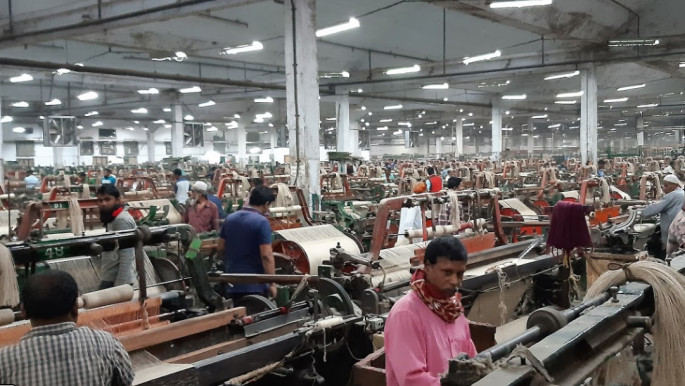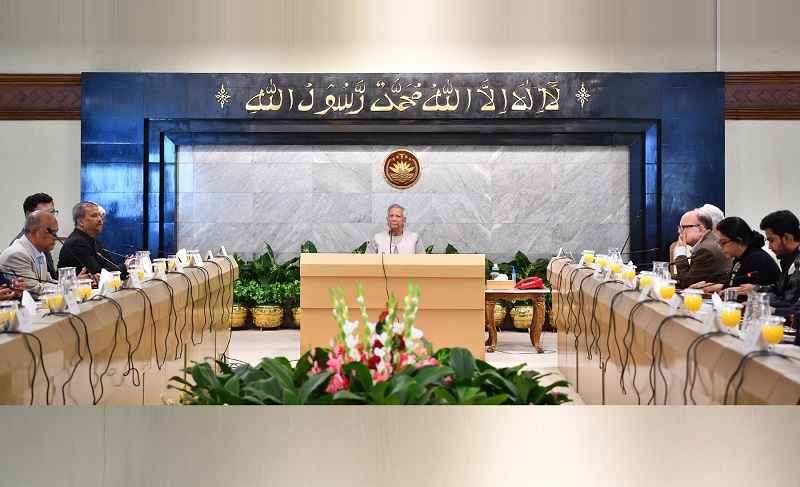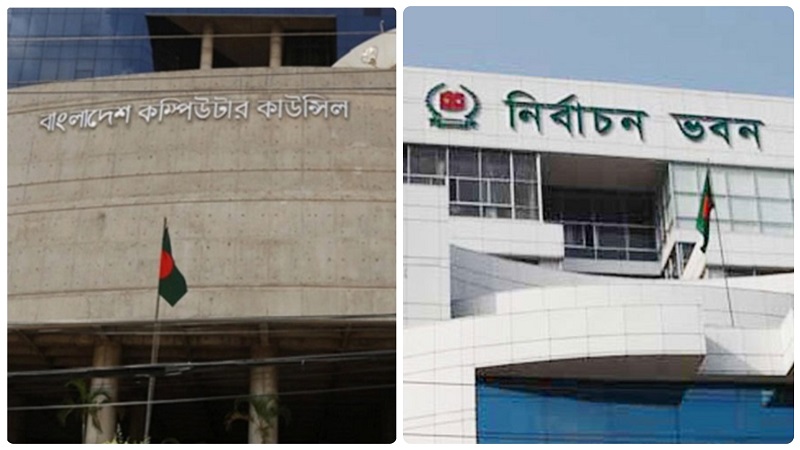The government on Thursday announced the closure of 25 jute mills operated under the state-owned Bangladesh Jute Mill Corporation since 1972.
The announcement was made by principal secretary Dr Ahmed Kaikaus after the decision was taken at a meeting chaired by prime minister Sheikh Hasina at Ganabhaban.
The principal secretary to the prime minister made the announcement at a press briefing, according to a local news agency.
The government decision to shutter the state-owned jute mills was formally announced on the day when the Left Democratic Alliance, a combine of eight left-leaning political parties, staged a march towards the Prime Minister’s Office from the National Press Club in the capital, protesting against the government decision to close the state-owned jute mills.
Police, however, stopped the marchers at Shahbagh where the leaders and activists of the alliance staged a protest rally.
According to a press release issued by the ministry of Textiles and Jute affairs on Thursday evening, 24,886 workers would voluntarily retire through golden handshake policy, effective from July 1, as per Bangladesh labour Law 2006.
The workers will be given 60 days’ wages as per the labour law, the release said, adding that they would be given gratuity as per National Wage Board 2015, all the money of provident fund and the golden handshake benefits.
According to a calculation of the ministry a worker in general will be benefitted with Tk 13.86 lakh while the maximum benefit for a worker will be Tk 54 lakh, it said.
At the same time, all the dues of 8,956 workers who went in retirement since 2013 and all the irregular workers will be paid at a one-off payment, the release said.
It said that half of the compensation would be given in cash and other half in the form saving certificates run by the finance ministry.
The workers’ cash compensation will be transferred to their bank accounts.
The decision of factory closure was taken, according to Ahmed Kaikaus, as part of the government plans to modernising the operation of the jute mills.
The current workers would be given priority for jobs when the mill would resume operation, he said without giving any details about the plan for modernisation.
Jute and textile ministry secretary Lokman Hossain Miah who attended the meeting told New Age that they were not concerned with the issue of reopening as stated by the principal secretary.
The ministry is busy with implementing the government decision taken four days after jute and textile minister Golam Dastagir Gazi said that operation of the state-owned jute mills would be shut down while the workers would be made to leave with ‘golden handshakes’.
Platinum Jubilee Jute Mills Workers’ Union president Shahana Sharmin in the evening said that they were yet to get any official letter about the closure of the mills.
She said that the mill, established in 1954, was taken over by the government in 1972 and on Tuesday the mill was in operation.
Shahana, also the joint convener of Bangladesh Patkol Rokhkha CBA-Non-CBA Sangram Parishad, protesting against the government decision, said that she heard about the factory closure on television.
The labour leader said that they were still in the dark about the payment which would be made to the workers.
The Sangram Parishad convener Sardar Abdul Hamid, however, said it was difficult for them to go against the decision.
Huge amounts of recurring losses incurred by the state-owned BJMC over the years have been attributed by the jute and textile minister to the ultimate decision to shutter the factories.
Golam Dastagir said that the mills lost their competitiveness due to high production costs resulting from the high wages of the workers.
He, however, hinted at the reopening of the mills under the public-private partnership arrangement within the next six months by handing over the mills to businesses having expertise in the field.
He said that 9,000 workers, who had already retired, would also be given their dues and other retirement benefits by September.
Anu Muhammad, a Jahangirnagar University economics professor, earlier said that shutting down the state-owned jute mills was not a new decision.
The process started in the time of the BNP government with the WB prescribing the closure of all the country’s jute mills and the present government is going to complete the job,’ he observed.
Anu Muhammad said that the government was not giving priority to environment-friendly industries like jute mills, rather was preferring projects that harmed the environment and the humanity at large.
Centre for Policy Dialogue research director Khandaker Golam Moazzem said that the government earlier took an initiative to run the state-owned mills under the PPP arrangement but the project failed.
The workers were not responsible for incurring losses in the jute mills, rather it is the misma













